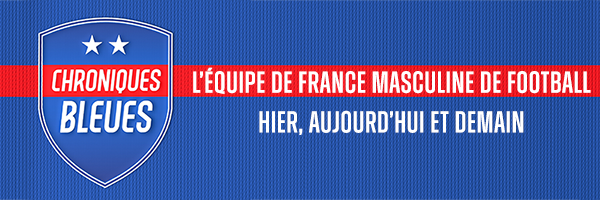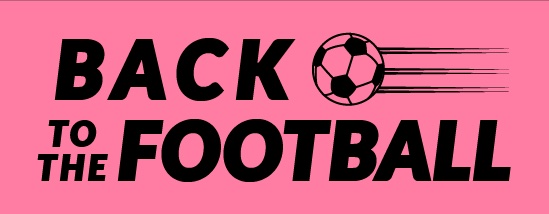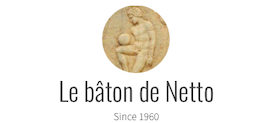Lire sur le site de Soccer Nostalgia The Soccernostalgia Interview-Part 44a et The Soccernostalgia Interview-Part 44b
Lire la version en anglais. English version here
Cet article fait partie de la série Dialogue avec Soccer Nostalgia
Soccernostalgia : Michel Hidalgo a commencé la saison 1981/82 avec la qualification pour la Coupe du monde toujours incertaine. Quelle était l’ambiance au début de cette saison ?
Bruno Colombari : L’année 1981 est mal partie, avec les deux défaites en Espagne et aux Pays-Bas, et la leçon prise au Parc contre le Brésil. Mais il y eu cette belle victoire contre la Belgique, qui laisse la porte ouverte à une qualification. Le problème, ce sont les deux déplacements à Bruxelles et à Dublin qui n’inspirent pas confiance, tant cette équipe est fragile à l’extérieur.
La saison débute le 18 août 1981, par un match amical à Paris contre le club ouest-allemand du VfB Stuttgart. A la surprise générale, la France s’est inclinée (1-3). Ce match est resté dans les mémoires car le public parisien a hué Michel Platini au point qu’il a demandé à être remplacé. Pourquoi un tel accueil hostile ?
C’est un grand classique en France de siffler les meilleurs joueurs, d’autres en ont fait les frais plus tard, même Mbappé récemment. L’équipe de France a mal joué, mais à ce moment-là de la saison, contre un club, ça n’avait pas beaucoup d’importance. Platini venait d’être champion avec Saint-Etienne, où il ne se sentait pas très bien, et il avait manqué les deux matchs des Bleus au printemps sur blessure. C’était une année difficile pour lui.
Le 9 septembre 1981, la France se rend à Bruxelles et perd (0-2) contre la Belgique pour son premier éliminatoire de Coupe du Monde de la saison. Hidalgo a expérimenté Platini comme avant-centre. Que pensez-vous de ce match ?
Il a été perdu, mais si le but de Platini marqué à la 9e n’avait pas été refusé pour une position de hors-jeu très douteuse, le résultat n’aurait sans doute pas été le même. A partir du moment où la Belgique a ouvert le score, tout est allé de travers. Cette équipe, sans Giresse ni Tigana ni Genghini, est déséquilibrée, avec des joueurs sans expérience (Hiard, Mahut, Moizan) et Platini, placé avant-centre, est trop isolé pour peser sur le match. Il faut dire que cette équipe belge est très forte, comme elle le montrera à la Coupe du monde. Elle finira d’ailleurs en tête de son groupe, ce qui n’est pas rien.
Le 14 octobre 1981, une fois de plus la France s’éloigne de chez elle. Cette fois à Dublin pour affronter la République d’Irlande pour leur prochain éliminatoire de la Coupe du Monde. Une fois de plus la France s’est inclinée face à un rival (2-3) loin de sa base. La presse et le public perdaient-ils confiance après tant de défaites ?
L’Irlande était une bonne équipe, avec Brady et Stapleton, mais n’était quand même pas au niveau de la Belgique ou des Pays-Bas. Ça n’a pas empêché la France de perdre à Dublin comme en 1977, en étant largement dominée en première mi-temps où elle a encaissé trois buts. La défense était un vrai problème : depuis le début de l’année 1981, ça faisait 15 buts en 7 matchs en comptant celui contre Stuttgart, dont 3 matchs avec 3 buts encaissés. Heureusement, les autres résultats du groupe lui laissaient encore une chance de se qualifier, à condition de gagner ses deux derniers matchs. A domicile, ça semblait possible.
Le 18 novembre 1981, la France accueillait les Pays-Bas à Paris pour son plus important éliminatoire de la Coupe du monde. C’était un match que la France devait gagner contre une équipe néerlandaise en déclin. La France s’est imposée (2-0) pour se qualifier virtuellement pour la Coupe du monde. Décrivez le soulagement collectif après la victoire.
La première mi-temps n’était pas bonne, et il avait fallu un coup franc de Platini, tiré en deux temps à cause d’une main néerlandaise sur la première tentative, pour débloquer le match. Mais Hidalgo a pris d’énormes risques tactiques : il associe Trésor à Lopez en défense centrale alors qu’ils jouent au même poste de libéro en club, il aligne trois numéros dix au milieu (Genghini, Platini et Giresse) et Rocheteau, qui joue désormais avant-centre à Paris, à son ancien poste d’ailier droit. En cas d’échec, toute la responsabilité lui aurait été attribuée. Il est donc logique de reconnaître que c’est son audace qui a permis aux Bleus de gagner ce match. Le journal L’Equipe titre le lendemain « Bravo et merci », car évidemment pour les médias et les sponsors, une participation à la Coupe du monde est très importante financièrement.
Le dernier match de qualification de la France pour la Coupe du monde au Parc contre Chypre le 5 décembre était une formalité. La France s’est imposée (4-0) confortablement. Dans l’ensemble, quelles ont été les leçons apprises au cours du processus de qualification ?
Ecarter Platini de l’équipe n’est pas une option : il est toujours décisif dans les matchs les plus importants, et c’est le seul joueur français, à ce moment-là, de classe mondiale. Mais il faut bâtir l’équipe autour de lui, avec un milieu plus technique que physique, et deux attaquants qui sont complémentaires avec lui, c’est-à-dire qui ne marqueront pas beaucoup de buts mais qui ouvriront des espaces dans l’axe. Le point faible de l’équipe est le poste de gardien et l’instabilité de la défense, mais il faudra attendre 1983 et l’arrivée de Bats pour mettre un terme aux essais, et 1984 et le passage de Bossis en défense centrale pour stabiliser la défense.
Le 23 février 1982, la France a entamé les préparatifs de la Coupe du monde lors d’un match très médiatisé contre l’Italie au Parc. Michel Platini face à plusieurs de ses futurs coéquipiers de la Juventus a été impressionnant lors d’une victoire (2-0). D’un point de vue historique, c’était les débuts de Manuel Amoros et la première victoire de la France sur l’Italie depuis 1920. Qu’en pensez-vous ?
A quatre mois de la Coupe du monde, on retrouvait une équipe de France brillante en match amical, alors qu’elle avait perdu les trois derniers (RFA, Espagne et Brésil). C’était une belle performance, d’autant que le public français découvrait deux nouveaux joueurs, les Monégasques Manuel Amoros et Daniel Bravo, qui marque le deuxième but en fin de match. Dix des quatorze français qui ont participé à la rencontre joueront à Séville en juillet. Mais le meilleur français est Michel Platini, qui évolue dans toutes les zones du jeu. Le président de la Juventus, Gianni Agnelli, décide ce soir-là de le recruter. Le transfert sera négocié fin avril.
Le 24 mars 1982, la France poursuit sa préparation lors d’un match amical contre l’Irlande du Nord au Parc. La France s’est imposée confortablement (4-0). La France commençait-elle à retrouver sa forme sans le stress des qualifications ?
Surtout, elle n’encaisse pas de but pour la quatrième fois d’affilée, ce qui ne lui était jamais arrivé. Mais ce sont quatre matchs à domicile… Et l’équipe d’Irlande du Nord ne fait pas une grande prestation, même si huit de ses titulaires retrouveront la France en juillet à Madrid. Mais il leur manque leur gardien Pat Jennings. Côté français, alors que Platini est forfait que les titulaires en attaque (Rocheteau, Lacombe et Six) ne sont pas retenus, des joueurs comme Bellone, Genghini ou Zénier font le maximum pour gagner leur place.
La phase finale des préparatifs de la France a été décevante. Le 28 avril, la France s’est inclinée (0-1) à Paris, suivie d’un match nul contre la Bulgarie à Lyon le 14 mai, et enfin d’une autre défaite (0-1) à domicile contre le Pays de Galles à Toulouse le 2 juin. Quelles ont été les leçons apprises ?
Cette préparation a été ratée, et la conséquence a été un premier tour pas maîtrisé en Coupe du monde. Aucun but marqué en trois matchs, deux défaites à domicile, c’était clairement une déception. Si Platini ne joue que le premier des trois matchs, le dernier contre la Bulgarie permet de revoir le milieu de France-Belgique 1981, Tigana-Giresse-Genghini. Mais l’attaque ne marque pas. Il faut dire qu’elle n’est pas du tout complémentaire, avec Lacombe encadré par les jeunes Bellone et Bravo.
Michel Hidalgo fait les derniers essais, comme le gardien de Monaco Jean-Luc Ettori, le défenseur de Metz Philippe Mahut ou l’arrière gauche de Bordeaux François Bracci. Le premier sera titulaire en Espagne, le deuxième sera remplaçant et le troisième ne sera pas dans la liste.
Mais on sait maintenant qu’il ne faut pas accorder beaucoup d’importance à des matchs amicaux de préparation. En 1998, ils ne seront pas bons non plus, et en 2018, les Bleus perdront à domicile contre la Colombie, avant de faire match nul face aux Etats-Unis. Ça ne les a pas empêché d’être champions du monde juste après.
Y a-t-il eu des surprises ou des oublis notables dans le Final 22 sélectionné pour la Coupe du monde ?
Pas vraiment de surprises, mais Michel Hidalgo avait brassé tellement de joueurs les années précédentes que le choix était assez large. En fait, c’est comme toujours : il y a 14 ou 15 joueurs indiscutables, sauf blessure, et le vrai choix se fait sur les 7 ou 8 autres qui seront la plupart du temps remplaçants. Mahut, Bellone, Couriol ou Girard étaient à l’évidence des joueurs de complément, qui n’avaient pas vocation à débuter les rencontres. S’il y avait un oubli, c’est sans doute Jacques Zimako, qui restait sur plusieurs belles saisons. Et peut-être Luis Fernandez, qui n’avait que 22 ans mais qui avait été très bon avec le PSG. Il débutera en sélection quelques mois plus tard, en novembre.
Tout au long de la saison, Hidalgo a hésité sur le choix du gardien. Dropsy, Hiard, Castaneda, Baratelli et Ettori ont tous été testés. À la fin, Ettori a obtenu le feu vert. Pourquoi Hidalgo l’a-t-il finalement choisi ?
Il me l’a expliqué lors d’une interview qu’il m’a donnée en 2012 : comme le poste de gardien ne lui était pas familier, il s’en remettait à un adjoint pour choisir. En 1982, il avait fait appel à Ivan Curkovic, l’ancien gardien de Saint-Etienne. Et c’est lui qui a recommandé Jean-Luc Ettori, alors qu’on pouvait s’attendre à ce qu’il pousse son successeur en club, Jean Castaneda. Mais ni Castaneda ni Ettori n’avait beaucoup d’expérience internationale. Le plus expérimenté était Dominique Baratelli, et au printemps il semblait favori pour la place de titulaire. Il prendra très mal son statut de remplaçant et refusera de jouer le dernier match contre la Pologne.
La France débute la Coupe du monde le 16 juin 1982 à Bilbao contre l’Angleterre de la pire des manières en s’inclinant (1-3). Les Français étaient épuisés sous une température de près de 40 degrés Celsius et une fois de plus l’expérience de déploiement de Platini comme avant-centre n’a pas réussi. Quelles ont été les leçons de ce match ?
Les Bleus ont été dépassés dans les duels par des Anglais très offensifs qui ont mis une pression terrible dans les premières minutes. Le milieu Girard-Larios-Giresse n’a pas du tout fonctionné, même si individuellement Larios a été intéressant et Giresse fin techniquement, mais il n’y avait pas d’équilibre et la défense était très exposée. Il y a eu des défaillances individuelles aussi, notamment Trésor et Ettori, alors que Platini était dans un mauvais jour. A la fin, on avait une impression d’impuissance, comme en 1978 contre l’Italie.
Pour le deuxième match le 21 juin, la France a confortablement battu le Koweït (4-1). Bien sûr, le match est dans les mémoires pour d’autres raisons que tout le monde connaît. Comment cela a-t-il été perçu par la presse française ?
L’annulation du but de Giresse par l’intervention du président de la fédération koweitienne est un épisode assez ridicule mais qui n’a eu aucune influence sur le résultat du match ni sur la qualification française pour le second tour. Il faut se souvenir que le Koweït avait fait match nul face à la Tchécoslovaquie quelques jours plus tôt, et ce match ressemblait à un piège. Le fait que les Bleus se soient imposés facilement (surtout qu’il y a eu non pas un, mais quatre buts refusés, dont trois étaient pourtant valables) et avec la manière était une bonne nouvelle et replaçait l’équipe de France dans la course à la qualification. Et surtout, les tensions en interne se sont calmées à ce moment-là.
Pour son dernier match de Groupe, la France devait éviter la défaite face à la Tchécoslovaquie. L’équipe a mal joué et a eu des dernières minutes nerveuses, mais elle s’est qualifiée avec un match nul (1-1). Comment la performance française a-t-elle été perçue ?
L’essentiel, à savoir la qualification pour le second tour, était acquis, et ce n’était pas rien après les échecs de 1966 et 1978. Les Français ont plutôt dominé ce match et auraient dû le gagner, mais après le but de Six, ils n’ont pas décidé entre attaque pour marquer un deuxième but ou défendre pour préserver le résultat. Et comme souvent dans ce cas, ils se sont exposés à une égalisation. Après le pénalty de Panenka, il y a eu six ou sept minutes de panique, avec un sauvetage d’Amoros sur la ligne à la fin du match.
L’une des controverses hors terrain du premier tour concernait les célébrations d’anniversaire. Apparemment, toute l’équipe a célébré l’anniversaire de Michel Platini, mais a ignoré l’anniversaire de Jean Tigana. Quelle est la véritable histoire ?
C’est bien ce qui s’est passé. Un gâteau avait été préparé pour les 27 ans de Platini le 21 juin, jour de France-Koweït, au cours duquel il a d’ailleurs marqué un but. Mais rien le 23, pour les 27 ans de Tigana. Celui-ci est alors allé chercher une part de dessert en cuisine, a planté une bougie dessus et est revenu en criant « bon anniversaire, Jean ! ». Quelques jours plus tôt, il avait été oublié par le chauffeur de car après un footing en forêt et avait dû rentrer à l’hôtel à pied. De plus, Tigana était très déçu de n’avoir joué qu’un quart d’heure pendant tout le premier tour et le faisait savoir. C’est d’ailleurs le forfait de Platini, touché à la cuisse contre la Tchécoslovaquie, qui lui permettra d’être titulaire contre l’Autriche.
L’autre controverse hors du terrain était la situation Platini-Larios. C’était une affaire privée qu’il n’est pas nécessaire de discuter. Larios a affirmé qu’il avait été expulsé de l’équipe sur l’insistance de Platini. Sait-on s’il a été écarté pour des raisons tactiques ou disciplinaires ?
Michel Hidalgo m’a dit que Larios s’était mis à l’écart du groupe lui-même après le match contre l’Angleterre (il ne rejouera que le dernier match face à la Pologne). Il ne comprenait d’ailleurs pas pourquoi Hidalgo l’avait pris dans la liste des 22. C’est dommage et ça a eu des conséquences pour la suite, car Larios était un excellent joueur, avec un physique d’athlète (ce qui n’était pas le cas des autres milieux de terrain) et une technique très fine, un peu comme Vieira ou Pogba. Il aurait été très précieux à Séville.
Dans la phase de deuxième groupe, la France a retrouvé sa forme et a battu l’Autriche (1-0) et l’Irlande du Nord (4-1) pour atteindre les demi-finales. Pensez-vous que la France a peut-être bénéficié d’un tirage au sort favorable ?
Il n’y a pas eu de tirage au sort entre le premier et le second tour. Le tableau du second tour a été établi lors du tirage des groupes en janvier. L’équipe de France a certes bénéficié d’adversaires largement à sa portée, mais c’est dû à la faiblesse de l’Espagne au premier tour (qui aurait rencontré la France si elle avait finit première de son groupe) et à l’inexpérience de l’Algérie, qui a mal géré la deuxième mi-temps contre le Chili et laissé filer la deuxième place, prise par l’Autriche. On aurait pu donc avoir un groupe France-Espagne-Algérie, peut-être plus difficile, mais où les Bleus auraient eu toutes leurs chances aussi.
La demi-finale contre l’Allemagne de l’Ouest le 8 juillet 1982 fait partie de l’histoire du football. Schumacher/Battiston, la volée de Tresor, l’avance (3-1) et le cri de Giresse, les tirs au but, etc. On pourrait discuter de ce match pendant des heures. Dans une interview, Platini a déclaré qu’il avait traversé toutes les émotions imaginables ce jour-là qu’aucune œuvre d’art ne pouvait imiter. Quelle a été votre émotion en tant que témoin ?
C’était incroyable. J’avais 16 ans, et je n’avais jamais assisté à un match pareil. Les Français avaient un gros complexe d’infériorité face aux Allemands, et notamment les Stéphanois (Janvion, Lopez et Rocheteau) qui avaient été battus par le Bayern en 1976 avec déjà Rummenigge. Alors, oui, quand Amoros a tiré sur la barre à la toute dernière minute, on y a cru. Quand Trésor a marqué avec sa magnifique reprise de volée, on s’est dit que c’était fait. Et quand Giresse a battu Schumacher, ce n’est pas à la finale de la Coupe du monde que je pensais, mais au fait qu’on allait en marquer un quatrième, un cinquième, et leur faire avaler leur arrogance. Grosse erreur.
Après le match, je me souviens être sorti dans la nuit d’été sans bien comprendre ce qui s’était passé. Il y avait une énorme déception, bien sûr. Pas tellement de ne pas aller en finale, car honnêtement, ça semblait un peu trop difficile, mais d’avoir perdu après avoir si bien joué. On dit souvent que grandir, c’est apprendre la frustration, que ce n’est pas parce qu’on veut quelque chose qu’on va l’avoir. Parfois, il faut essayer, échouer, essayer encore, et peut-être ne jamais réussir, mais grandir en essayant. C’est une leçon de vie, dure mais nécessaire.
J’ai revu le match l’an dernier pour écrire Espagne 82, ainsi que les six autres. Le revoir m’a fait un peu la même impression que de revoir la photo d’une fille dont on était amoureux à l’adolescence, et qu’on se dit « qu’est-ce qu’elle était belle ! ». Avec le temps, le chagrin et le manque causé par la perte s’effacent, et reste la nostalgie. Ces souvenirs-là sont précieux, il faut en prendre soin.
La troisième place était un match sans importance que personne ne se souciait de jouer. Cependant, la France a poursuivi sa tradition de 1978 d’aligner des joueurs qui n’avaient pas encore disputé la Coupe du monde. Que pensez-vous de ce match ?
Qu’il n’a effectivement servi à rien, sauf peut-être pour ceux qui ont joué leur seul match de Coupe du monde, comme Castaneda, Mahut ou Bellone. La France a insisté pour qu’à l’Euro 84, qu’elle allait organiser, on supprime ce match de classement, alors qu’il avait été joué en 1980. Franchement, il ne manque à personne. Une Coupe du monde n’est pas un tournoi olympique, même si elle en est l’héritière. Au football, pas besoin de médaille de bronze.
Alain Giresse a été le grand bénéficiaire de cette Coupe du monde. Quels sont les autres joueurs qui ont impressionné ?
Oui, c’était le meilleur joueur français, il a marqué trois buts en deux matchs et en une semaine, autant que lors de ses 45 autres sélections. Il a d’ailleurs fini deuxième du Ballon d’or derrière Paolo Rossi. J’ai adoré Manuel Amoros, aussi. Il n’avait que vingt ans, c’est-à-dire quatre de plus que moi, et je jouait arrière latéral en club, comme lui. Et les coups francs du gauche de Genghini ! Les seuls buts français sur coup franc en Coupe du monde, d’ailleurs. Même Platini n’en a pas marqué. Bossis a été extraordinaire lui aussi. Contre la RFA, il a joué à droite, mais il était partout sur le terrain. C’était un défenseur de classe mondiale, comme Lilian Thuram plus tard.
Jean-Luc Ettori est devenu le bouc émissaire de cette Coupe du monde. Est-ce juste ? Y a-t-il d’autres joueurs qui, selon vous, ont été décevants lors de la Coupe du monde ?
Il n’y a pas de grande équipe sans grand gardien. C’est dur pour lui, d’autant qu’il avait fait une très bonne saison en club avec Monaco. Mais le niveau international était sans doute très élevé, et il l’a payé cher. Curieusement, alors qu’il encaisse trois buts, il fait un bon match contre la RFA à Séville. Mais il rate complètement sa séance de tirs au but, comme il l’a reconnu lui-même il y a quelques mois. Il ne se jette pas, alors qu’il n’avait rien à perdre !
Didier Six n’a pas été très brillant devant, même s’il marque deux buts au premier tour et donne une passe décisive à Giresse en demi-finale. Christian Lopez ne fait pas un grand tournoi non plus, même si son entrée contre la RFA, à un poste de milieu de terrain où il était perdu, ne l’a pas aidé. Et Bernard Lacombe, qui s’est blessé face à l’Autriche, n’était pas à son niveau habituel. Et il n’avait plus sa place dans le 4-4-2 où Platini jouait très haut, près des deux attaquants qui avaient plutôt un profil d’ailiers.
Que pensez-vous de la trajectoire de Larios après la Coupe du monde ? Était-ce auto-infligé ?
Cette Coupe du monde qui aurait pu être celle de son explosion au plus haut niveau l’a complètement déstabilisé. Après l’été 1982, il n’a fait que des mauvais choix : il quitte Saint-Etienne, son club formateur, pour l’Atlético Madrid où il ne joue pas, puis il part à Montréal, revient en Europe à Neuchâtel et finit par quatre saisons anonymes en France. Une centaine de matchs en cinq ans, une douzaine de buts. Dans son autobiographie, il raconte une vie totalement incompatible avec le haut niveau. C’est un énorme gâchis, un peu comme José Touré quelques années plus tard.
Sans sa blessure, pensez-vous que Platini aurait pu être aussi influent qu’il l’aurait été en 1984, ou pensez-vous qu’il était nécessaire pour son développement de connaître la Serie A pour jouer un rôle dominant ?
Sans doute les deux. Platini arrive à la Coupe du monde fatigué par une saison très longue avec Saint-Etienne, et lors de la préparation, il souffre d’une pubalgie qui l’oblige à rester allongé quatre heures par jour. Puis Panenka le blesse à la cuisse lors du troisième match. Contre l’Irlande du Nord et la RFA il joue diminué, alors qu’avec Saint-Etienne il avait marqué 35 buts en 51 matchs.
Mais ses deux saisons à la Juventus avant l’Euro vont beaucoup lui apprendre, sur la gestion d’un match et ce qu’il faut faire pour tenir un résultat. Il a dit récemment qu’il regrettait, quand Battiston a été remplacé par Lopez, de ne pas avoir demandé à Janvion de passer au milieu, où il aurait été beaucoup plus utile.
Quel bilan faites-vous de la saison et de la Coupe du monde en général et du rôle d’Hidalgo dans tout ça ? Était-ce la référence d’une renaissance à l’image des Suédois de 1958 ?
Le niveau de jeu n’était pas du tout le même, et il est impossible de faire des comparaisons. A la différence de celle de 1958, l’équipe de France n’avait pas de buteur du profil de Just Fontaine, et à part Jean-Pierre Papin, et dans une moindre mesure David Trezeguet, elle n’en a jamais retrouvé de pareil. Mais ce tournoi est un condensé de la saison 1981-1982 : un début raté avec des tensions et du fatalisme, une prise de risque payante qui transforme l’équipe et une apothéose frustrante car elle ne débouche pas sur un titre.
Mais en 1982, l’équipe de France a franchi un énorme palier : on la compare au Brésil, ce qui n’est pas rien, et elle est passée à onze minutes et à un tir au but d’une finale de Coupe du monde. Elle se sent légitime, sans doute pour la première fois de son histoire, à gagner un titre. Et elle va le faire.








